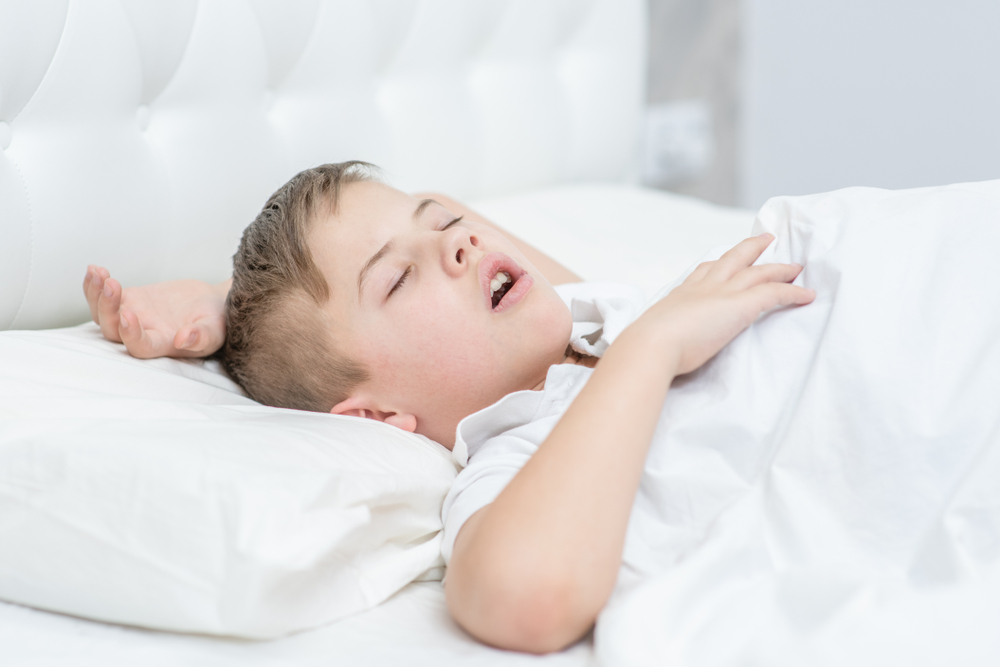
Some people may consider mouth breathing a matter of preference. But these individuals would be surprised to find out that breathing through their mouths regularly can impact their oral health.
Issues ranging from halitosis (bad breath) to gum disease and cavities can be a result of mouth breathing. So, if you don’t want an unpleasant surprise during your next dental cleaning here at Bridge Creek Dental, here’s exactly how mouth breathing impacts your oral health and what you can do about it.
Impact On Oral Health Due To Mouth Breathing
Much of the impact of mouth breathing on your oral health is due to how mouth breathing dries out your mouth while breathing through your nostrils provides warmed, humidified air. With a dry mouth from mouth breathing, these are some of the most common oral health side-effects:
- Halitosis – Ongoing bad breath that isn’t alleviated with mouthwash, breath mints, and other things is classified as halitosis. The bad breath is caused by a buildup of bacteria, which is normally managed by your saliva. But if you breathe through your mouth, you won’t have enough saliva to control the bacterial growth.
- Tooth decay – Another side-effect of having uncontrolled bacterial growth due to less saliva is that tooth decay can increase and spread from tooth-to-tooth. This decay, if left unchecked, can lead to infection and tooth loss.
- Gum disease – A dried-out mouth with unchecked bacteria is also one that is vulnerable to gum disease. If bacteria are able to penetrate between your teeth and gums, you can develop gingivitis, which can progress into the more serious stages of periodontitis.
Children, in particular, experience negative side-effects due to mouth breathing, to the point where they suffer developmental issues. The main oral health impact of mouth breathing on children can be:
- Malocclusion – Developing young mouths can become misaligned—also called maloccluded—by mouth breathing. This misalignment due to mouth breathing can result in a significant overbite and crooked teeth caused by crowding.
- Excess gum tissue – A gummy smile—where most of the smile is gum tissue—can be the result of mouth breathing as a child.
- Narrower mouths – As mouth breathing while young can impact how a child’s face develops, this impact extends to the shape of the mouth. Children who mouth breathe can develop narrower mouths that require dental intervention to correct.
Signs Of Mouth Breathing
A significant part of preventative dental care is careful monitoring of your oral health. If you are worried that you are mouth breathing, here are some signs you can look for:
- Snoring
- Chronic fatigue
- Dry mouth
- Moody and tired when waking
- Halitosis
- Brain fog
- Hoarse voice
As for what triggers mouth breathing, a common culprit is allergies and other nasal-related issues. Sometimes, the problems can tie into other airway issues, like sleep apnea. It is important to determine the source of your mouth breathing so that you can effectively address it before it has a further impact on your oral health.
Our Dentists Can Help Correct Mouth Breathing Side-Effects
Once you have worked with a medical professional or used the right medication to address your nasal congestion, you will likely need to take care of the oral issues that mouth breathing has caused. You can start this process by coming into our clinic for a dental cleaning.
During your cleaning, our staff can determine what problems need to be addressed, and you can consult with our dentists on cosmetic changes you would like to make. If you grew up mouth breathing, or you have a child who has been impacted by mouth breathing, procedures like gum tissue reduction, braces, spacer insertion, and other services may be needed.
If you are ready to tackle the issues that have been triggered by mouth breathing, whether it is having cavities filled or teeth whitened, feel free to contact us today to start working with our dentists.